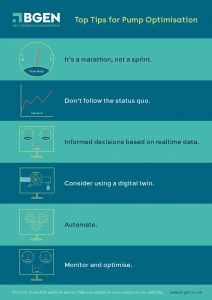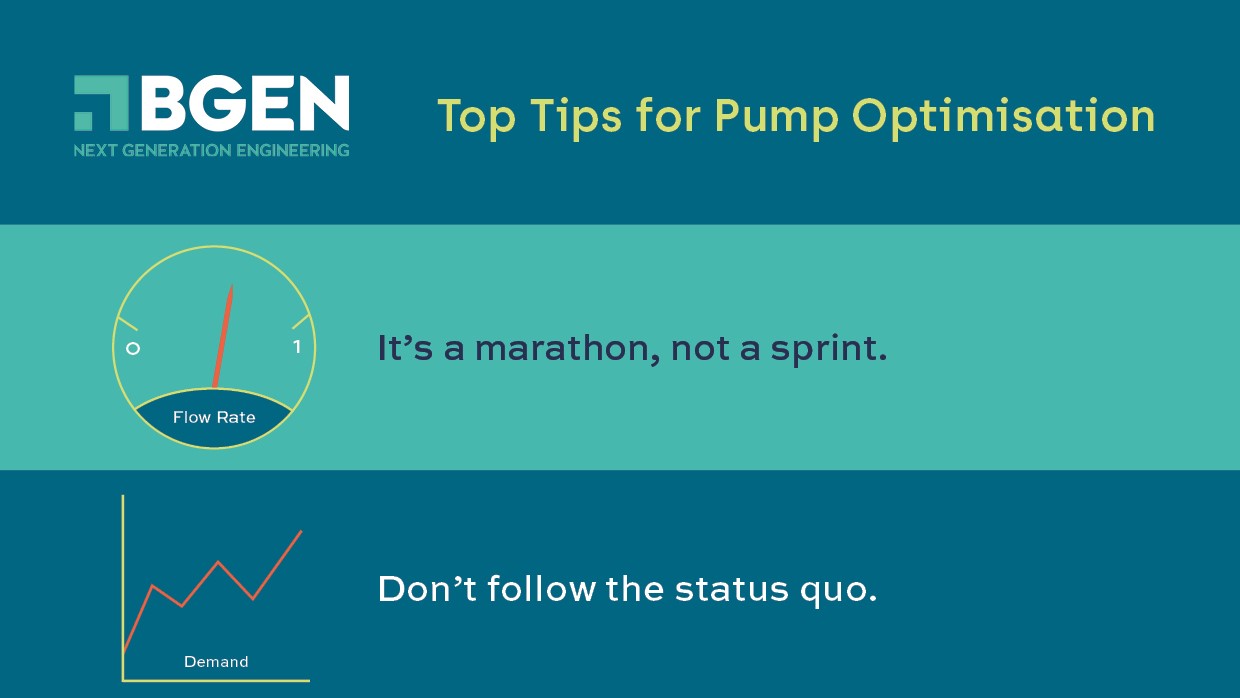 BGEN, a specialist, multi-discipline engineering solutions business, has issued guidance to help water companies to optimise pump performance to reduce energy consumption and leakages. The advice comes at a time when energy prices are at a record high and UK consumers are faced with hosepipe bans as water companies face the challenges of another warm summer.
BGEN, a specialist, multi-discipline engineering solutions business, has issued guidance to help water companies to optimise pump performance to reduce energy consumption and leakages. The advice comes at a time when energy prices are at a record high and UK consumers are faced with hosepipe bans as water companies face the challenges of another warm summer.
“Rising energy costs and warmer summers as a result of climate change are significant challenges facing the water industry,” says Andy O’Rourke, senior engineer at BGEN. “While there is no silver bullet to addressing these issues, water companies can make significant energy savings and reduce leakages by following the below guidance.”
Tip #1 – It’s a marathon, not a sprint
Pumps are fundamental to the water industry. They regulate the pressure in pumping mains to ensure water reaches its final destination, while also removing and enabling treatment of wastewater. The key to optimising pumps is to implement consistent flow rates to meet demand and avoid excessive peaks and troughs which often results in more energy being consumed.
Tip #2 – Don’t follow the status quo
While providing a supply of clean water is the number one priority of a water company, in today’s day and age the focus needs to be on working smarter. Implementing a dynamic control solution to meet customer demand with minimal excessive pressure is one example. Needlessly pumping water or generating excessive pressure equals more energy and could be hiding a leak.
Tip #3 – Make informed decisions based on real-time data
Embracing a real-time operating philosophy to include pressure / flow / tariff profiles is key to optimising performance. This will determine the most cost-effective way to produce water on a minute-by-minute basis.
Tip #4 – Consider a digital twin
A digital twin is a real-time virtual simulation of a physical process or system. Using a digital twin when assessing operational changes to improve performance, enables operators to see the impact of any updates in ‘real terms’ before they go live. This methodology also enhances the design and commissioning phase and minimises disruption.
Tip #5 – Automate
Like other industries, automation can play a significant role in helping water companies to optimise operations through efficiency and cost improvements. In addition, it can free up precious resources to be diverted to proactive work to strengthen resilience.
Tip #6 – Monitor and optimise
Technology is now available to truly support water companies in enhancing their operations. In addition to traditional process alarms, effective monitoring will use real-time data to flag efficiency and cost concerns.
“The above guidance provides a steer on how water companies can look to optimise their pump operations,” concludes Andy O’Rourke. “For companies with more complex needs we have a team of specialists on hand to provide bespoke support.”



